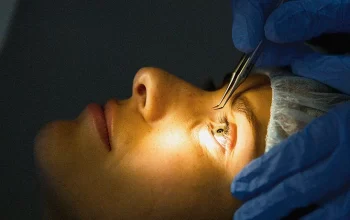Sleep has long been seen as an essential ingredient of good health – both physically, psychologically, and in terms of life span. Sleep is an effective natural healer.
Memory improvement and immune system strengthening are only among many of its many benefits; physical activity also strengthens your heart and blood vessels while helping you lose weight.
1. It Helps the Brain
People might perceive sleep as being passive and meaningless, but your brain is hard at work during this period. No wonder there’s an entire field dedicated to sleep medicine!
Researchers are discovering that during sleep, our brain undergoes numerous crucial processes – from consolidating memories to problem-solving – which help the mind function more efficiently and prevent emotional problems such as depression or anxiety from emerging. Without enough restorative sleep, mental and emotional problems such as depression and anxiety become much more likely to appear.
Sleep may also help clear your brain, decreasing the risk of Alzheimer’s disease and neurodegenerative conditions. By increasing space between brain cells during sleep, neurodegenerative waste products and proteins linked with neurodegeneration are flushed away more quickly – giving a good night’s restorative benefits.
2. It Helps the Body
Sleep may seem straightforward, but it’s actually a complex process which influences how your brain and body operate while awake. Furthermore, it plays an integral part in your mental and physical wellbeing and the way in which you think, feel, learn, and interact with others.
Sleep allows the body to conserve energy by shutting off most functions and clearing away waste from its nervous system, such as short-term memory retrieval or clearing away unnecessary information so it functions optimally when you wake up.
Sleep has recently become more of an emphasis in medical settings, yet remains less well known than other lifestyle factors such as diet, exercise and smoking. More effort must be expended towards improving sleep health through education, clinical practices, long-term care programs and public health initiatives.
3. It Helps the Immune System
Modern medicine’s understanding of sleep resembles an incomplete jigsaw puzzle: experts may know where some pieces belong, as well as an idea of the big picture; but they have not figured out exactly how everything fits together yet.
Sleep helps your body produce cytokines – essential proteins to fighting infection and inflammation – as well as stimulating your immune system to produce antibodies and other immune cells to defend you against germs.
Studies show that getting enough sleep is crucial to the effectiveness of white blood cells that patrol our bodies looking for pathogens. Sleep significantly increased the production of IL-12 by precursors of APC that most closely relate to mature Th1-type adaptive immunity cells compared with remaining awake for too long.
4. It Helps the Heart
While heart health is strongly tied to diet, exercise and other risk behaviors such as smoking cessation or physical inactivity, poor sleep also affects cardiovascular systems negatively. Sleep apnea disrupts your circadian rhythm, alters hormone levels and raises stress levels, which increases heart disease risk.
Researchers have also discovered that failing to get enough quality sleep triggers your body to overeat, craving sugary and fatty foods which could contribute to obesity and heart disease. Furthermore, if you already suffer from heart issues like high blood pressure or diabetes, missing quality restful sleep puts you at an even higher risk for issues related to your cardiovascular system.
When it comes to improving overall health, people often think of healthy eating and physical activity as being the cornerstones of optimal wellbeing. At University Hospitals Harrington Heart & Vascular Institute, we encourage our patients to prioritize sleep for heart health.
5. It Helps the Muscles
Sleep can help muscles recover after intense workouts. When fatigued, muscles break down into microtears in their muscle tissue that lead to inflammatory cells rushing in and repairing damage quickly. Over time, this causes your body to release protein-building amino acids into your bloodstream more rapidly so you can continue building muscles over time.
Non-Rapid Eye Movement (NREM), also known as dreamless sleep, is when the pituitary gland produces 70 percent of its human growth hormone, an anabolic substance which promotes muscle tissue growth. At this point, most muscles in your body become paralyzed for restorative rest after exercise or daily wear and tear – providing them a chance to heal as you sleep soundly through NREM sleep.
Sleep is vitally important to our overall health, yet millions of people don’t get enough of it. One way to improve this situation is to cut out caffeine consumption, which acts as a stimulant and may prevent you from sleeping through the night. Try sipping on green or chamomile tea prior to bedtime for relaxation purposes.




